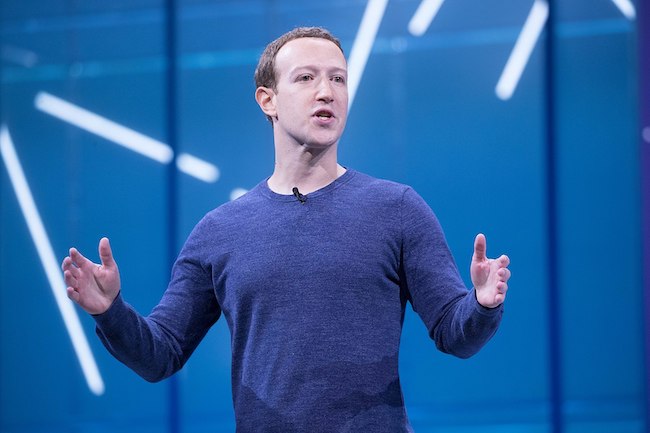When Mark Zuckerberg checked out of Harvard for California’s Silicon Valley, his lofty ambitions were to connect the world and make a ton of money. On both counts, he has been wildly successful – as of
The company has thus been compared to a nation-state, but in truth, few countries can rival such numbers, and few political leaders are as impactful as the Facebook leader. Mentored by Bill Gates on how not to act as a young billionaire, until recently, Zuckerberg seemed to be comfortably evolving into a global statesman – learning to speak fluent Mandarin and visiting every American state in a manner that fueled speculation of political ambitions.
The past two years, however, have not been kind to the social media giant and its chairman, CEO and controlling shareholder. Election meddling and privacy scandals have led to calls for either massive reforms within the company or government intervention, or both. Even Silicon Valley observers, such as early Facebook investor Roger McNamee, have called for a total reinvention of the company’s business model, urging a fix for Facebook “before it fixes us.”
Zuckerberg’s laudable response was to pledge to do just that, making remedial action his 2018 mission. He has appeared before U.S. and European politicians (claiming to welcome regulation), hired thousands of new security staff, and agreed to create independent monitoring of Facebook’s content censorship – a near impossible balance of freedom of expression and preserving the sanity and “health” of online users, to quote Twitter’s Jack Dorsey.
Nonetheless, the Facebook mantra has long been to “move fast and break things,” and some fear that along the way it may have broken democracy itself. In classic political grandstanding, NDP MP Charlie Angus labeled the absent Zuckerberg “a frat boy billionaire.” Angus was one of three Canadian MP’s in a unique and promising group of law makers from nine countries that came together to sign a non-binding set of International Principles for the Law Governing the Internet.
Notwithstanding his grudging and limited openness in recent months, Zuckerberg’s tendencies are to hunker down and devise ways to preserve and expand Facebook’s lucrative advertising model while addressing (albeit defensively and grudgingly) societal and governmental concerns. The company is looking to artificial intelligence to help patrol its platforms, while investing in more policy-minded election integrity efforts in numerous countries (including Canada).
Such efforts are bound to fall short for two reasons. First, it is simply not possible for Facebook to satisfy the insatiable thirst of shareholders for growth and profitability while also investing in costly new defensive capacities. And secondly, Facebook is itself a decidedly undemocratic organization.
Both challenges intersect around Zuckerberg, who has made it clear to shareholders (including himself) that near-term investments will lessen profitability. The stock price plummeted by a third in 2018, but for the historical-minded Facebook leader (reportedly a student of Chinese leaders and their grand master plans) such fluctuations matter less than achieving long-term dominance.
As social and political concerns mount, however, shareholders and stakeholders are becoming restless about the unfettered power of one individual (as is known to happen from time to time within Canada’s Parliamentary model…). Investors and outside groups of different sorts are now calling for Zuckerberg to, at the very least, relinquish his role as board chairman (with board directors widely criticized for failing to provide meaningful oversight).
Within the company too, there are reports of Zuckerberg acting more authoritatively – a view seemingly underscored by numerous executive departures. As has been evident at neighboring Google, highly educated and mobile workers demand a voice. Otherwise, they leave. Up until two years ago, Facebook was widely viewed as inclusive and transformational, whereas the workplace today is a toxic mix of negative headlines and crisis response.
Such are the growing pains of a disruptive force maturing into a blue-chip enterprise with heightened expectations and pressures stemming from its tremendous reach. Yet if the company is to play a meaningful and constructive role in reshaping public institutions, much depends on values and actions at home. Ironically enough, Facebook’s fortunes may well rest on its founder’s willingness to embrace a bit more democracy.

